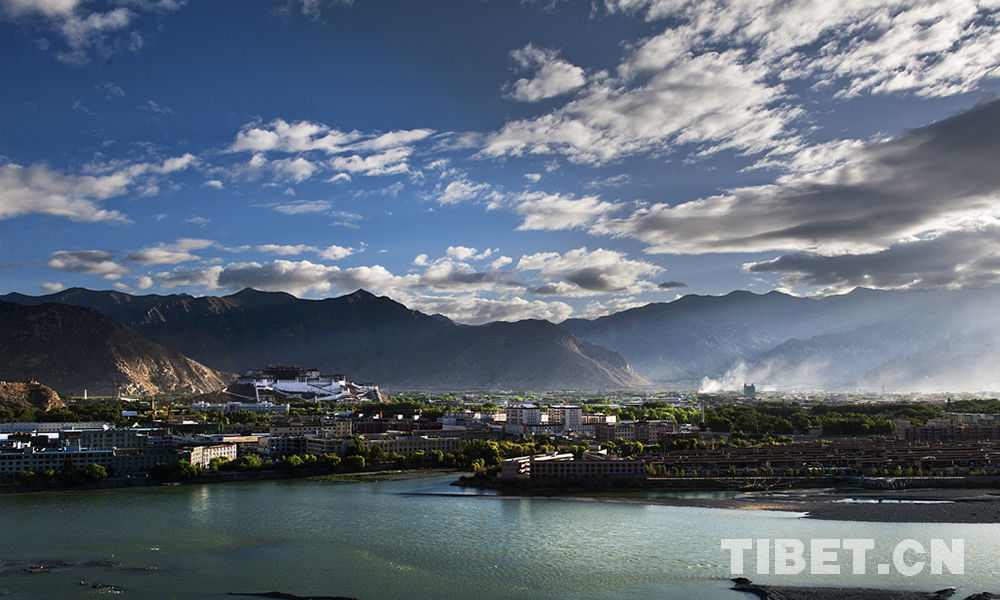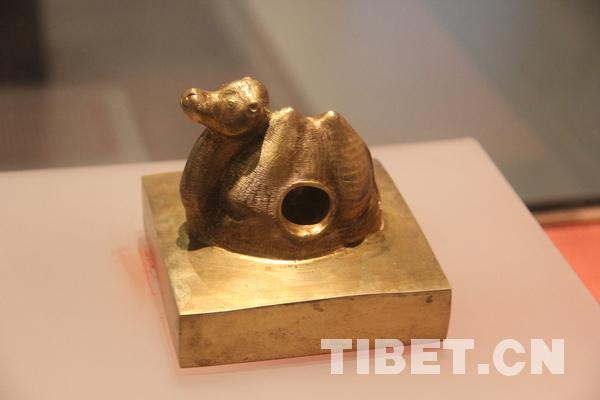Marco Polo, first westerner to record Tibet as part of China
A lecture on "Tibetan culture and Tibetan Buddhism" was co-hosted on June 16 in Madrid by Madrid Chinese Cultural Center and the Chinese cultural exchange delegation during its visit to Spain. Hao Shiyuan, member of the Chinese Academy of Social Sciences and chairman of the Chinese Anthropology Association, gave a lecture titled "Tibet's history and status quo" from four aspects: Tibetan history, Tibet before 1959, development and progress in Tibet and China's ability to solve Tibet-related issues.
During the lecture, Hao Shiyuan mentioned that the Italian Marco Polo left the following record in his famous book The Travels of Marco Polo. "Tibet is a huge region where residents have their own language and idols to worship, but everything reverts back to the governing of the Yuan dynasty emperor." In the 13th century, Marco Polo traveled in China for 17 years and was the first westerner to record Tibet as part of China.
Hao Shiyuan said that many Westerners started describing China's Tibet in the 18th century. In 1783, Samuel Turner from East India Company arrived in Shigatse and said that a traveler's first impression on arriving in Tibet was that it had the worst conditions in the world and displayed a large degree of cultural incompetence.
When the British army invaded Tibet in 1904, army correspondent Edmund Chandler revealed the essence of Tibetan society – as like the serfdom society of medieval Europe. Chandler said in his book Real Tibet, "In comparison with Europe's most bloody medieval castles, Potala Palace, a palace that houses Buddhist leaders and bodhisattva incarnations, has witnessed even more scenes of murder and situations where people are urged to commit crime." He also wrote, "the Lamas are the emperor's fathers and the farmers are slaves."
Hao Shiyuan introduced the status quo of Tibet, saying that in 2016 Tibet has already had six institutions of regular higher education, 127 secondary schools at all levels and 826 primary schools, with more than 500,000 students. In 2016, per capita disposable income for urban residents increased by 10% to 27,875 yuan (4,083 US dollars) and per capita disposable income for rural residents increased 13% to 9,316 yuan (1,364 US dollars).
Mr. Xu Songhua, executive director of China Association for Preservation and Development of Tibetan Culture and president of China Council for Promotion of Peaceful National Reunification in Spain said, "I travelled in Tibet in October 2008 for eight days and witnessed the development of Tibet. It was much better than I had imagined. What I saw was nothing like what the Dalai described, which indicates he was lying. There is a saying in China that seeing with your own eyes is better than hearing from others. I hope our Spanish friends can visit Tibet by yourself if you have the opportunity. Tibet is not that mysterious and its development is really comforting".
Your Comment
Name E-mailRelated News
-
;
-
-

-
Tibet under Chinese jurisdiction since Yuan Dynasty: archives
Tibet has been a part of China and officially under central government's jurisdiction since the Yuan Dynasty, confirmed by archives, according to the Archives Bureau of Tibet Autonomous Region, which has recently completed the salvage protection work of some Mongo
-
-
-

-
Austrians have misunderstandings over Tibet due to one-side inform
The negative news from western media and one-side information from some books are making misunderstandings over the Tibet issue, Austrian lawmakers said Tuesday in a meeting with a delegation from China.
-
-
-

-
Seals granted to Tibetans by Chinese central government in history
A book donation event was held by the Tibetan Culture Museum of China Tibetology Research Center in Beijing on May 18th, the International Museum Day.
-
Based in Lhasa, Tibet Vista is a Tibet travel agency that specialized in Tibet permit, and Tibet tours for both private and group travelers at a local price!
•4 Days Lhasa City Group Tour from USD 460 •8 Days Everest Base Camp Group Tour from USD 850 •15 Days Mt.Kailash Group Tour from USD 1780 •2016 Tibet Train Tours from Beijing, Shanghai, Chengdu, Xining,etc










